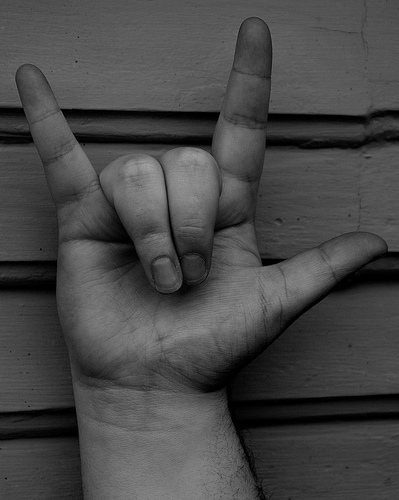An RMIT graduate is the first Indigenous man to complete a Diploma of Interpreting in Auslan. Darren Miller, 46, applied for the nationally-accredited course at RMIT after funding cuts meant he could only complete half of his certificate IV in Auslan at Kangan Institute. The married father of three commuted to and from Numerka, Victoria, up to three times a week in 2013 to hone a skill he has been practicing his entire life as his brother’s unofficial interpreter. “There was a lot I didn’t realise I didn’t know when I started to study Auslan. Now it’s all changed, and we’ve realised how I can communicate a lot better,” he said. Indigenous Australians are up to 10 times more likely to experience hearing loss than non-Indigenous Australians, but only three Auslan interpreters in Australia are Indigenous, out of a total of 302. Growing up with a brother who is deaf, Mr Miller experienced the difficulties presented by this national shortage. “We’d have to book an interpreter two to three weeks in advance, and then we’d get a phone call saying they
cancelled, so I would step in. As an interpreter they really depend on you,” he said. Mr Miller explains that this step forward for the Indigenous population is also a step for males in a female-dominated field. “For my brother, who has male problems and might need to go to the doctor, he’d much rather a male interpreter,” he says. The Victorian Government addressed the growing demand for Auslan interpreters early last year, pledging $5.2 million over three years to institutions running this sought-after qualification. Mr Miller was one of only 12 students to graduate with the diploma at RMIT in 2013. By Rachael Hocking Photo via Flickr


